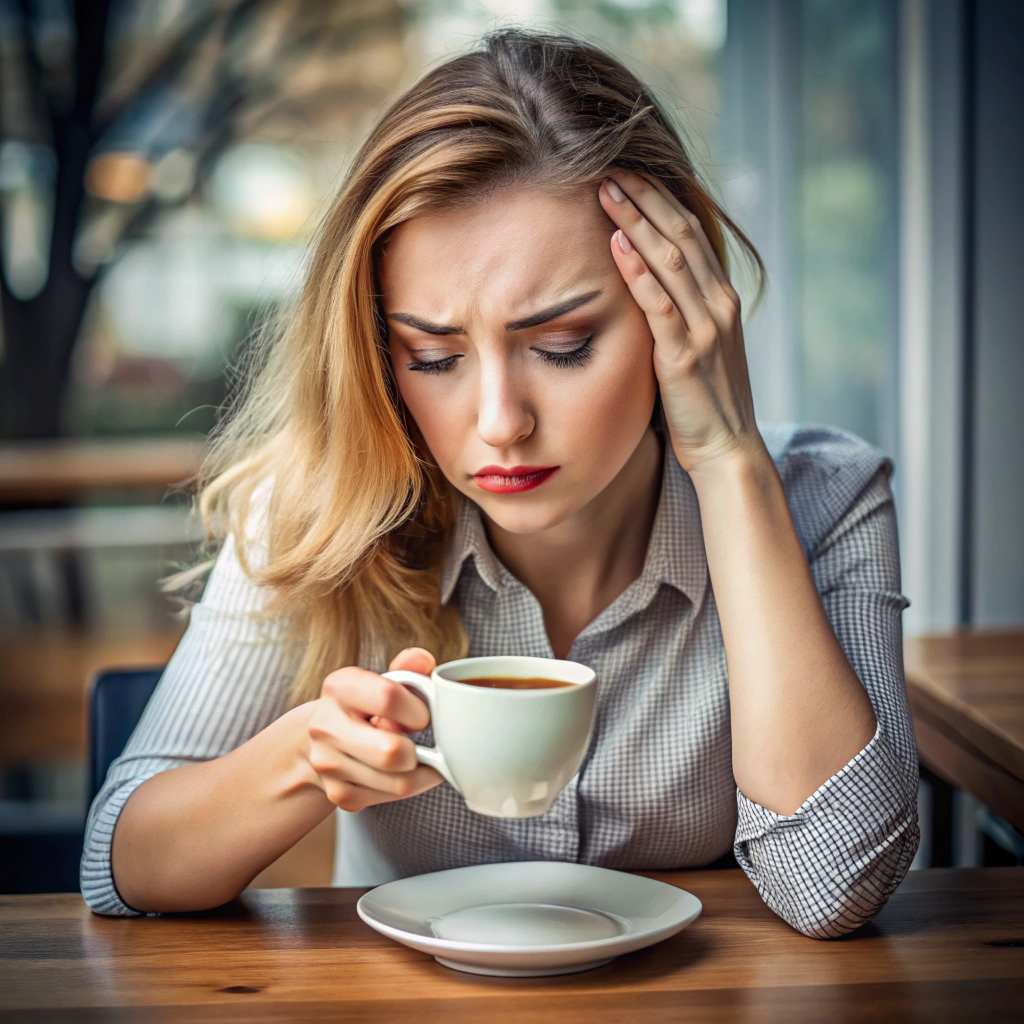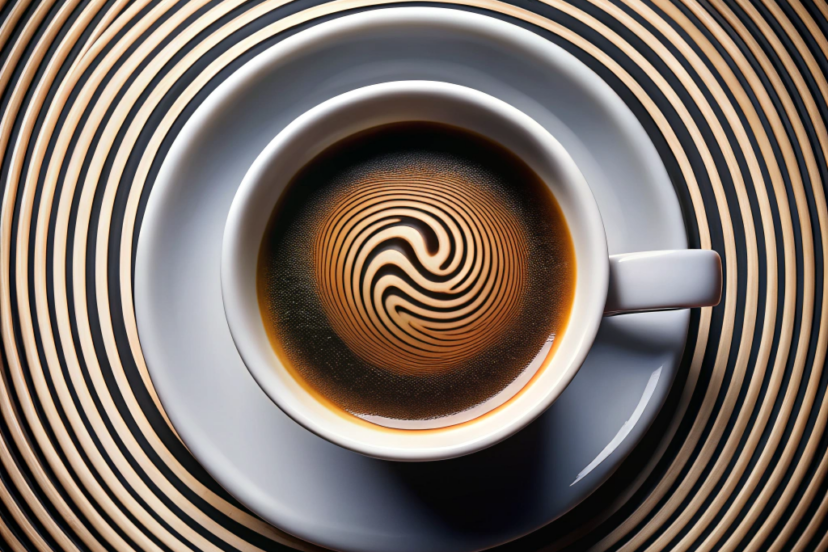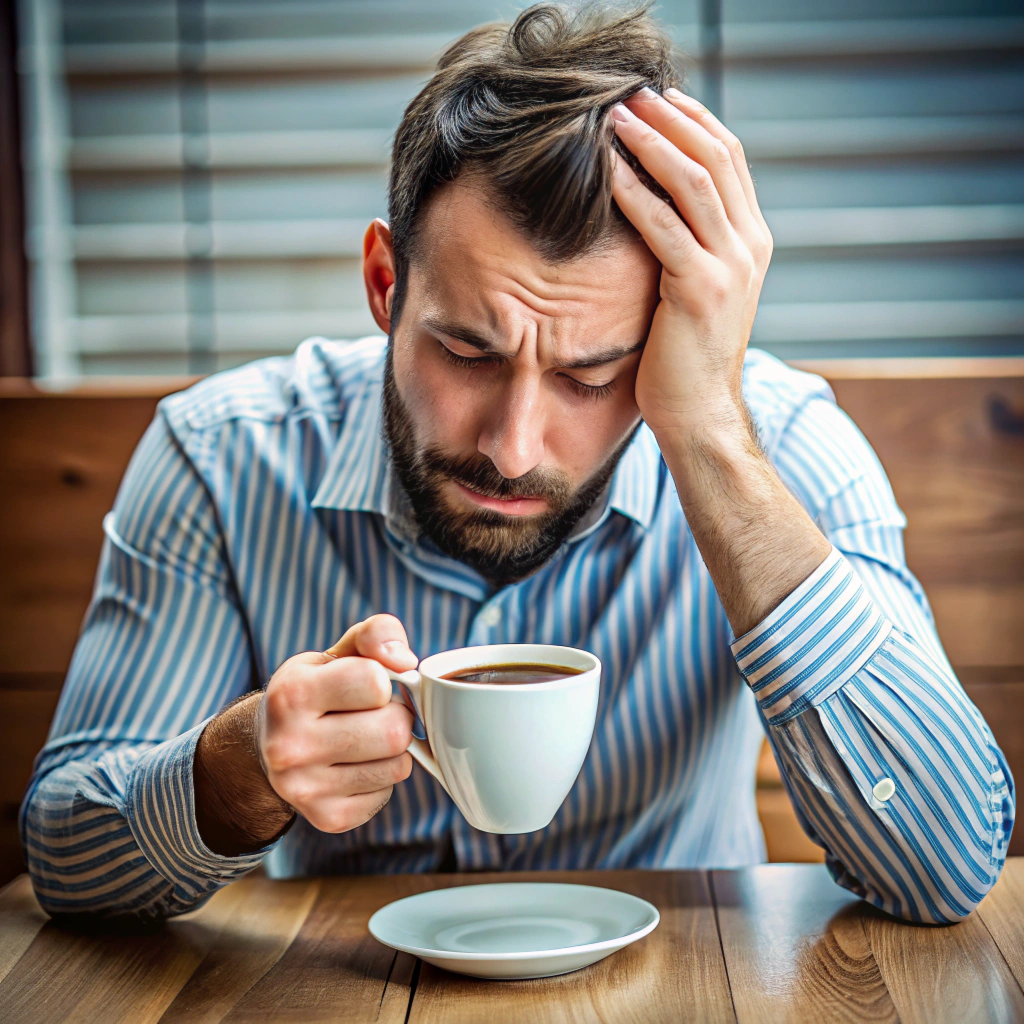Can Coffee Cause Dizziness? 10 Ways to Avoid It
We all love a good morning cup of coffee, don’t we? It kick-starts our day, boosting our energy levels and mental performance like magic, and can even help us lose weight. But sometimes, after savoring that rich, aromatic brew, you might feel a little woozy. Is it possible that coffee can cause dizziness? The answer is yes. Let’s explore why this happens and, more importantly, 10 scientific ways to avoid dizziness after coffee. In this article, we’ll dive deep into the science behind the effects of caffeine, how it can lead to dizziness, and what you can do about it. So, grab your cup of joe and let’s get started!
Understanding the Effects of Caffeine: Can Coffee Cause Dizziness?
Coffee, like many popular drinks, contains caffeine—a central nervous system stimulant. In moderate doses, caffeine can boost mental performance and improve cognitive function, but consuming high doses may cause caffeine-induced dizziness. Why? Let’s look deeper into caffeine’s effect on the body.

The Science of Caffeine Overload
Caffeine, the main ingredient in coffee, acts on the brain by blocking adenosine receptors, which keeps you awake and alert. However, in excessive amounts, caffeine can stimulate the release of adrenaline, increasing heart rate, constricting blood vessels, and reducing cerebral blood flow. These reactions may lead to unwanted side effects, such as dizziness, especially in individuals with caffeine sensitivity.
In fact, dizziness is a common side effect of caffeine consumption. Studies show that consuming more than 400 mg of caffeine per day, which is about four cups of coffee, can cause too much caffeine in the system, leading to health problems like dizziness, jitteriness, and irregular heartbeat (Mayo Clinic, 2021). But don’t worry, there are ways to avoid these symptoms.
10 Scientific Methods to Avoid Dizziness After Coffee
1. Hydrate with Water
Science: Caffeine is a diuretic, meaning it increases urination, which can lead to dehydration. Dehydration reduces blood volume, making it harder for your body to circulate blood effectively. This can lead to dizziness.
How it Helps: Drinking enough water is the best way to stay hydrated and prevent dizziness. After your coffee, be sure to drink a glass of water to restore your body’s fluid balance. Research indicates that proper hydration can significantly reduce dizziness (Journal of Clinical Medicine, 2019).
2. Eat Something After Your Coffee
Science: Consuming coffee on an empty stomach can trigger a drop in blood sugar levels. This is because caffeine can influence brain activity and cause spikes in adrenaline, which impacts your glucose levels.
How it Helps: Eating a small meal or snack that includes complex carbohydrates and protein can stabilize blood sugar and counteract the effects of caffeine. Foods like nuts, fruit, or whole grains are great options for reducing dizziness.
3. Take Deep Breaths
Science: Caffeine overstimulates your nervous system, leading to rapid, shallow breathing. This reduces oxygen levels in the blood and can cause dizziness or lightheadedness.
How it Helps: Practicing deep breathing exercises helps regulate oxygen and carbon dioxide in your system, which can counteract the adverse effects of caffeine. Taking slow, deep breaths for a few minutes can stabilize your body and reduce dizziness.
4. Lie Down or Sit Still
Science: When you consume large amounts of caffeine, you may experience a sudden drop in blood pressure, especially if you stand up too quickly. This can worsen dizziness and even lead to fainting.
How it Helps: Sit down or lie flat to help your body adjust to caffeine’s influence. This will allow your blood pressure to stabilize and can prevent fainting or further dizziness. Keeping your movements slow and deliberate is a good idea.
5. Get Some Fresh Air
Science: Coffee’s caffeine effect may reduce oxygen flow to the brain, causing dizziness.
How it Helps: Stepping outside and breathing in fresh air can increase oxygen levels and clear your mind. A short walk in fresh air can also boost energy levels without the unwelcome side effects of too much caffeine.
6. Drink Herbal Teas (Like Ginger or Peppermint Tea)
Science: Herbal teas, particularly ginger and peppermint, can help soothe the digestive system and reduce nausea that is often linked to caffeine-induced dizziness.
How it Helps: Ginger is known to relieve nausea and dizziness (Natural Medicines Comprehensive Database, 2020). Peppermint also has calming properties that can help balance the body after consuming caffeine. If you’re looking for a caffeinated drink alternative, herbal teas are an excellent choice.
7. Reduce Your Caffeine Intake Over Time
Science: Regularly consuming high doses of caffeine overstimulates the nervous system, leading to possible negative side effects such as dizziness, headaches, and vertigo symptoms.
How it Helps: Gradually reducing your caffeine intake gives your body time to adjust. Switch to decaf coffee or herbal teas for a smoother transition. Reducing your cups of coffee will prevent the stress response caused by caffeine metabolism and can lead to a significant reduction in dizziness.
8. Take Magnesium Supplements
Science: Caffeine can deplete magnesium, which is crucial for nerve and muscle function. Low magnesium levels may exacerbate the symptoms of dizziness or vertigo attacks.
How it Helps: Magnesium supplements or magnesium-rich foods like spinach, almonds, and avocados can help counter the negative effects of caffeine. Magnesium calms the nervous system, reducing the intensity of caffeine-related dizziness.
9. Stretch or Practice Light Exercise
Science: The sudden rapid increase in heart rate caused by caffeine can lead to restlessness and dizziness. Light exercise increases blood flow and releases endorphins, balancing your body’s response to caffeine.
How it Helps: Gentle activities like stretching or walking can help restore normal heart rate and reduce dizziness. Regular movement keeps your blood vessels healthy and improves overall health.
10. Balance Your Electrolytes
Science: Along with dehydration, caffeine can disrupt your body’s electrolyte balance, especially sodium and potassium levels. An imbalance in electrolytes can lead to vertigo symptoms and dizziness.
How it Helps: Eating foods rich in electrolytes, such as bananas, or drinking sports drinks or coconut water, can restore this balance and reduce dizziness. Maintaining your body’s electrolyte levels is essential for combating the unwelcome side effects of too much caffeine.
Can Coffee Cause Dizziness? – It Depends on How Much Caffeine You Consume
Yes, coffee can cause dizziness, especially when consumed in large amounts of caffeine. The amount of caffeine that triggers dizziness varies from person to person, based on factors such as caffeine sensitivity and overall tolerance. But the good news is that by applying these 10 scientific strategies, you can enjoy your morning cup of coffee without the dizziness.
Conclusion
While coffee is beloved for its ability to wake us up and boost mental performance, it can also lead to dizziness if you’re not careful. Understanding caffeine’s effect on the body is key to preventing caffeine-induced dizziness. From drinking enough water and eating the right snacks to reducing caffeine intake and balancing electrolytes, you can avoid feeling lightheaded after drinking coffee.
Now, sip with caution, and enjoy your coffee the smart way!
More articles on coffee:
FAQs About Coffee and Dizziness
1. How long does dizziness from coffee last?
Dizziness from coffee can last anywhere from a few minutes to several hours, depending on how much caffeine you’ve consumed and your individual sensitivity.
2. Can decaffeinated coffee cause dizziness?
Decaffeinated coffee contains less caffeine but can still have small amounts. If you’re highly sensitive to caffeine, even decaf coffee may cause dizziness.
3. Does caffeine affect everyone the same way?
No, caffeine sensitivity varies. Some people can drink several caffeinated drinks without issues, while others may feel jittery after just one cup.
4. Are there foods that can help reduce caffeine’s effects?
Yes! Eating fiber-rich foods like oats and complex carbohydrates can help slow down caffeine metabolism, reducing jitteriness and dizziness.
5. What’s the safest amount of caffeine to consume?
For most healthy adults, up to 400 mg (about four cups of coffee) per day is considered safe. However, people with certain health conditions, such as high blood pressure, or pregnant women should limit their intake.
6. When should you worry about dizziness?
If dizziness occurs frequently, lasts longer than a few hours, or is accompanied by other symptoms like chest pain, fainting, severe headaches, or vision problems, it could be a sign of a more serious condition. It’s important to seek medical attention if dizziness persists or worsens over time.
7. Is dizziness a warning?
Yes, dizziness can be a warning signal from your body. It may indicate dehydration, low blood sugar, or a reaction to caffeine. In some cases, it could be a symptom of underlying health conditions like heart problems, inner ear issues, or even neurological disorders.
8. How to flush out caffeine?
To flush out caffeine from your system, drink plenty of water to stay hydrated. Engaging in light exercise can help speed up your metabolism and burn off the caffeine. Eating foods rich in fiber, like whole grains, or consuming magnesium-rich foods can also assist in balancing your body’s response to caffeine.
9. How do you know if dizziness is brain-related?
Dizziness related to brain issues might come with symptoms such as difficulty speaking, weakness, numbness in limbs, or sudden severe headaches. If you experience any of these symptoms, it could be linked to neurological causes such as a stroke or brain injury, and you should seek immediate medical attention.





